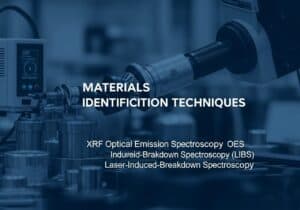The marketing concept is a business philosophy holding that achieving organizational goals depends on knowing the needs and wants of target markets and delivering the desired satisfactions more effectively and efficiently than competitors. It represents a shift from a product-centric (“make and sell”) approach to a customer-centric (“sense and respond”) one, placing the customer at the core of all business decisions.
The Marketing Concept
The marketing concept emerged in the post-World War II era as production capacity began to outstrip consumer demand in many industries. Prior to this, many businesses operated under a production orientation (focusing on manufacturing efficiency) or a sales orientation (focusing on aggressive selling to overcome consumer resistance). The marketing concept fundamentally changed this perspective. It posits that a firm’s success is not found in its production capabilities or its sales force, but in its ability to satisfy customer needs. This philosophy has three main pillars: a customer orientation, an integrated effort, and a goal orientation. A customer orientation means all decisions start with the customer. An integrated effort requires that marketing is not just a departmental function but a company-wide philosophy embraced by everyone from R&D to finance. A goal orientation means the firm aims to achieve its own goals (e.g., long-term profits) by satisfying customer wants. Theodore Levitt famously articulated this in his 1960 article “Marketing Myopia,” arguing that companies fail when they define their business by the product they sell rather than the customer need they fulfill (e.g., railroads defining themselves as being in the railroad business instead of the transportation business).
النوع
Disruption
الاستخدام
Precursors
- Adam Smith’s ideas on the consumer being the sole end of production
- The rise of consumer choice and discretionary income after WWII
- Early forms of market research and surveys
التطبيقات
- market research and consumer behavior analysis
- new product development based on identified customer needs
- user-centered design principles in software and technology
- customer segmentation, targeting, and positioning (STP) strategies
- total quality management (TQM) initiatives
براءات الاختراع:
Potential Innovations Ideas
!!مستويات !!! العضوية مطلوبة
يجب أن تكون عضوًا !!! مستويات!!! للوصول إلى هذا المحتوى.
متاح للتحديات الجديدة
مهندس ميكانيكي، مدير مشروع أو بحث وتطوير
متاح لتحدي جديد في غضون مهلة قصيرة.
تواصل معي على LinkedIn
تكامل الإلكترونيات المعدنية والبلاستيكية، التصميم حسب التكلفة، ممارسات التصنيع الجيدة (GMP)، بيئة العمل، الأجهزة والمواد الاستهلاكية متوسطة إلى عالية الحجم، الصناعات الخاضعة للتنظيم، شهادات CE وFDA، التصميم بمساعدة الحاسوب (CAD)، Solidworks، الحزام الأسود Lean Sigma، شهادة ISO 13485 الطبية
احصل على جميع المقالات الجديدة
مجاني، لا يوجد بريد عشوائي، ولا يتم توزيع البريد الإلكتروني ولا إعادة بيعه
أو يمكنك الحصول على عضويتك الكاملة -مجانًا- للوصول إلى جميع المحتويات المحظورة >هنا<
Historical Context
The Marketing Concept
(if date is unknown or not relevant, e.g. "fluid mechanics", a rounded estimation of its notable emergence is provided)
Related Invention, Innovation & Technical Principles









